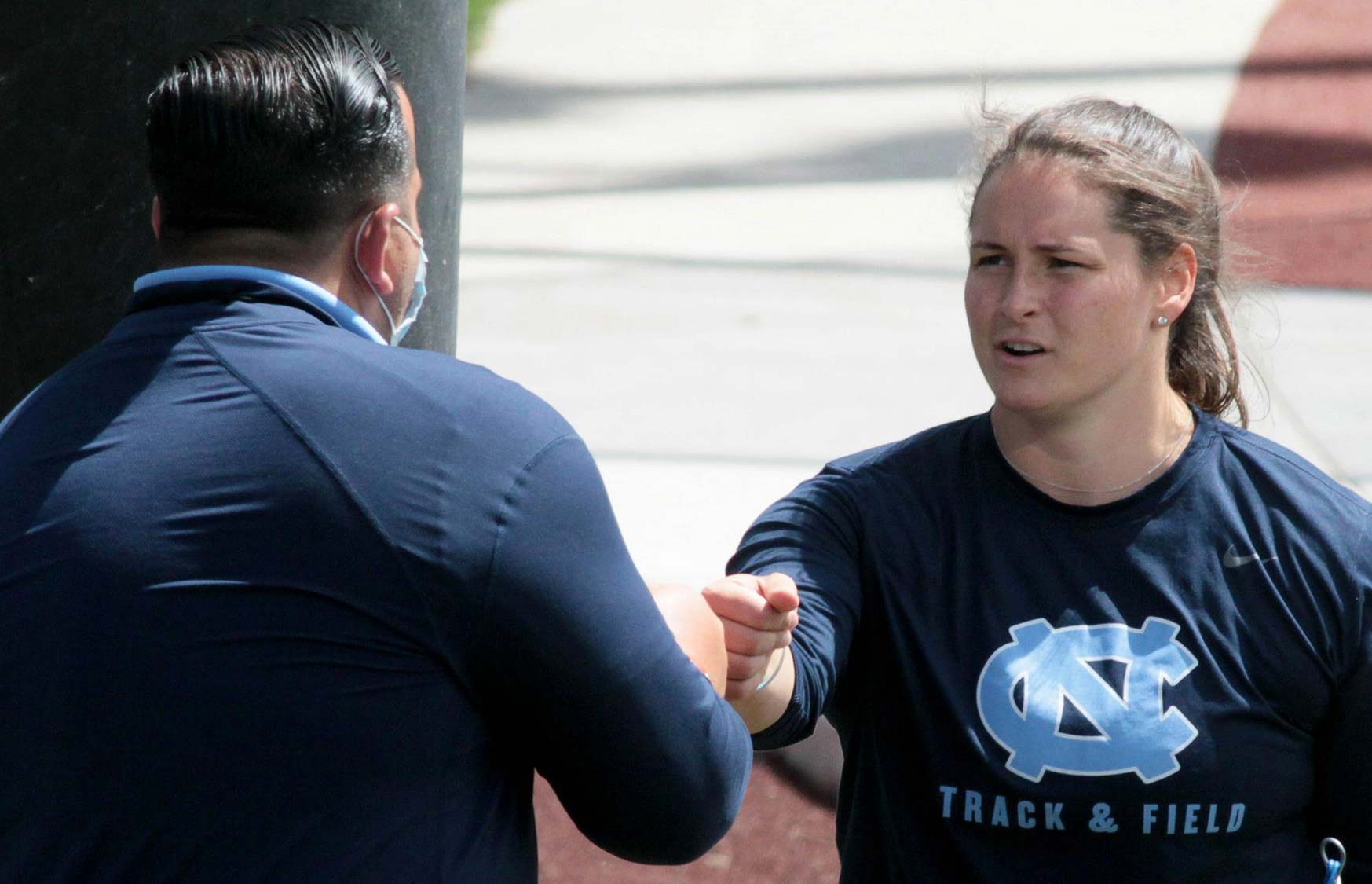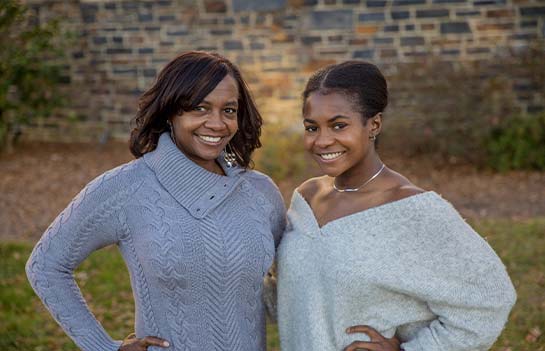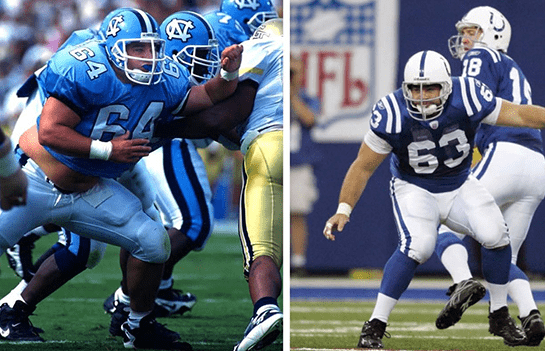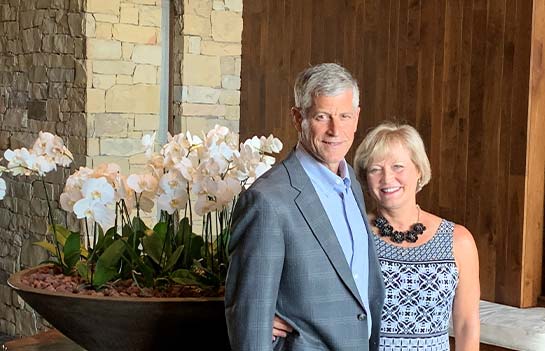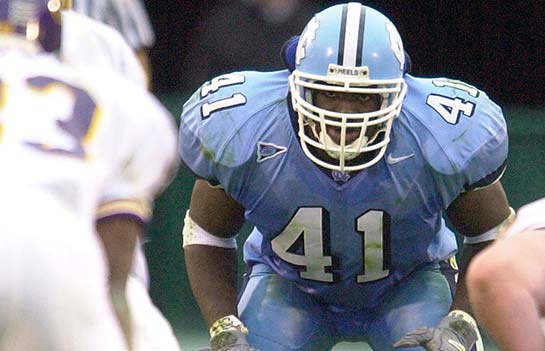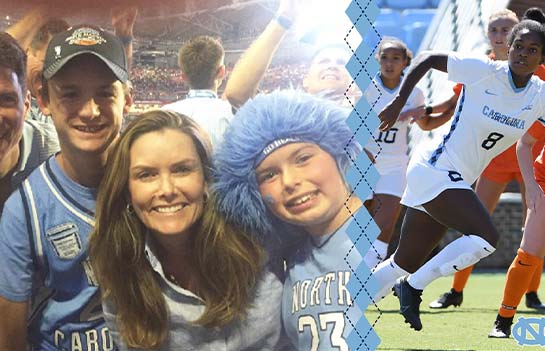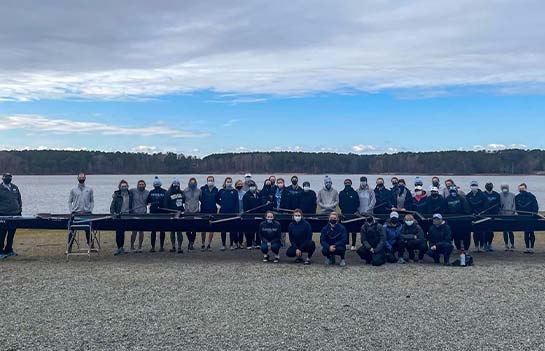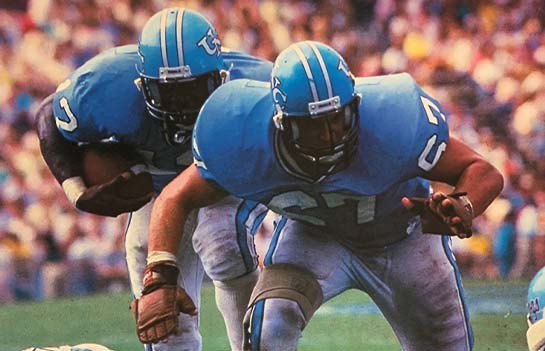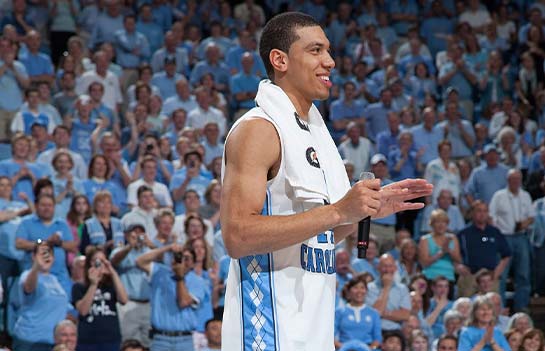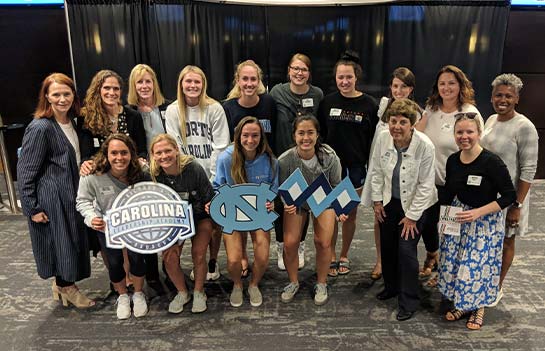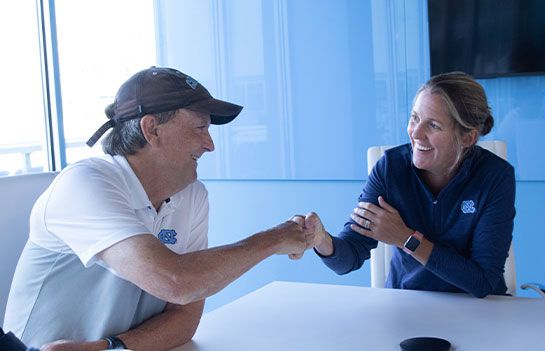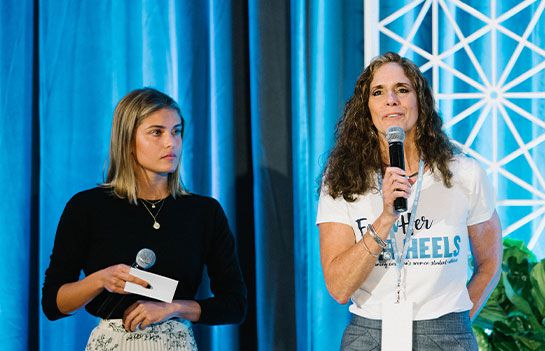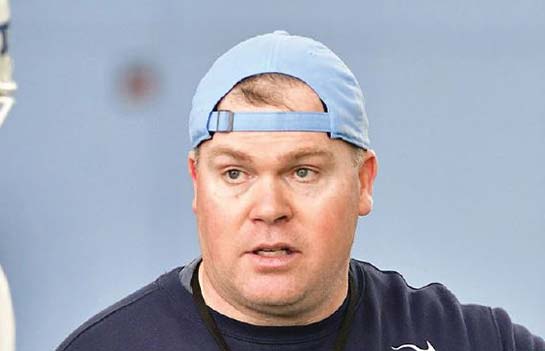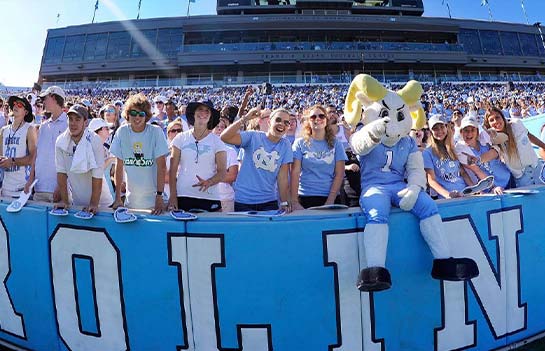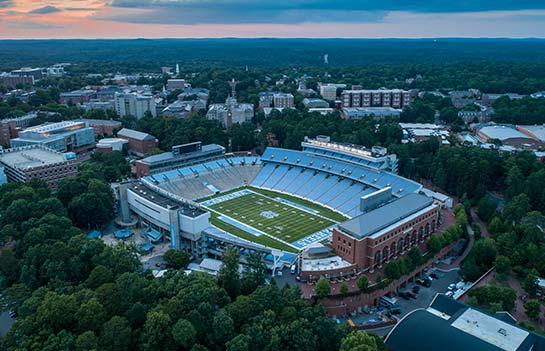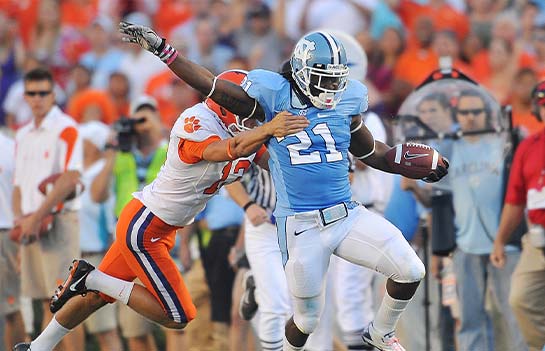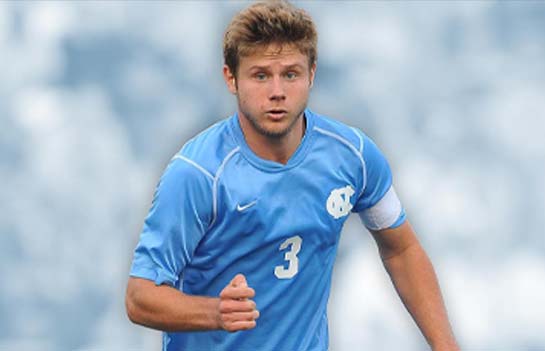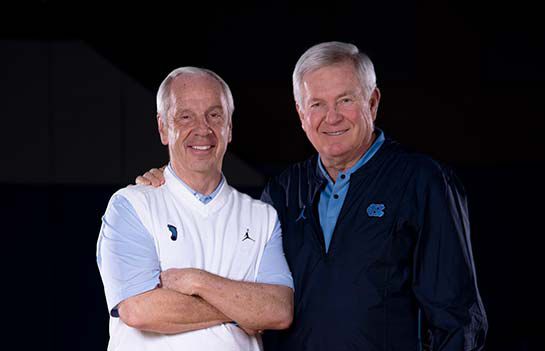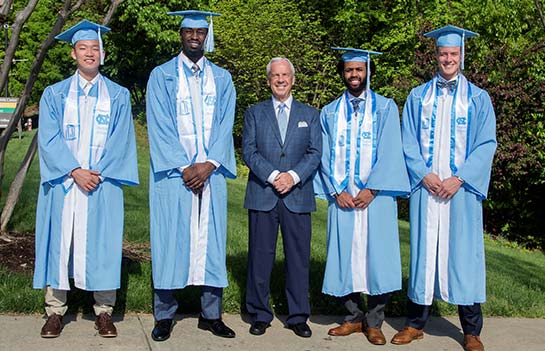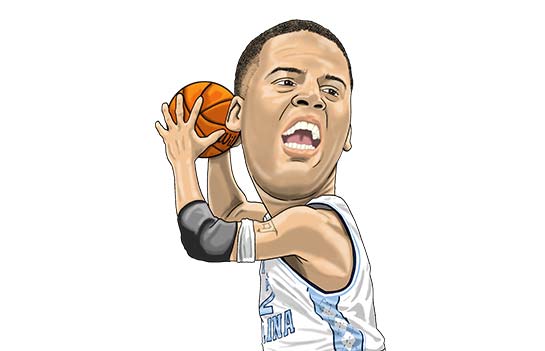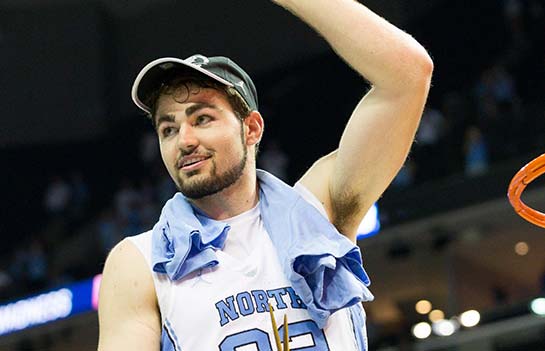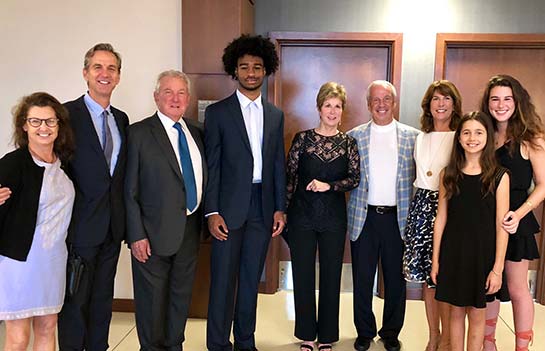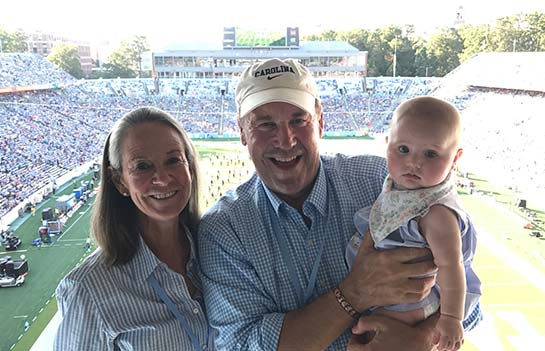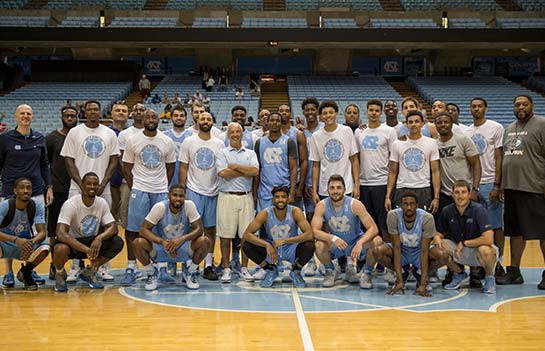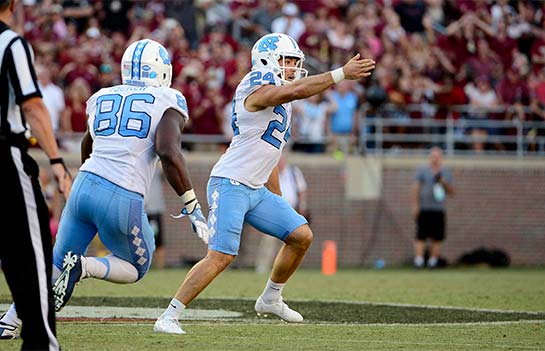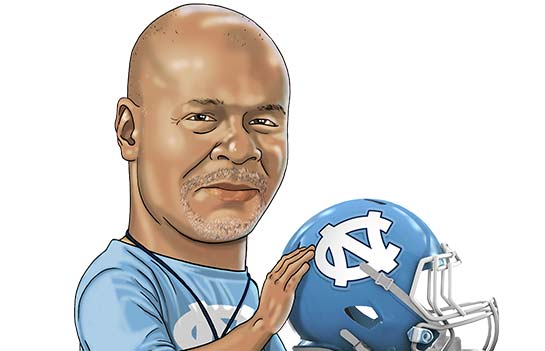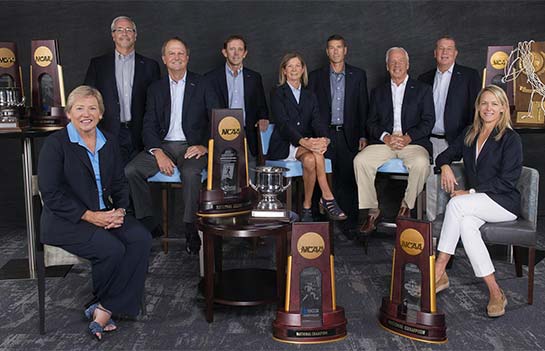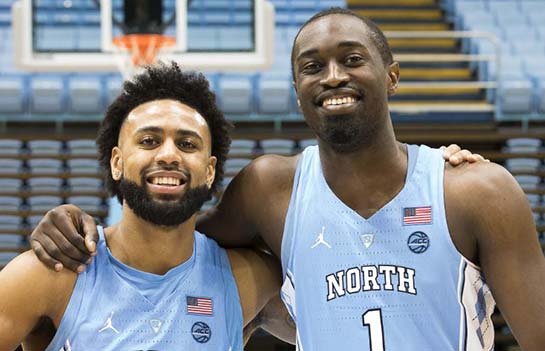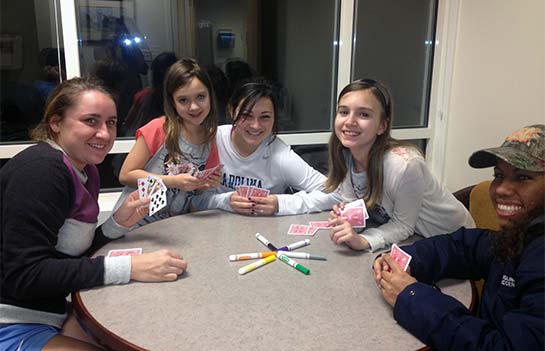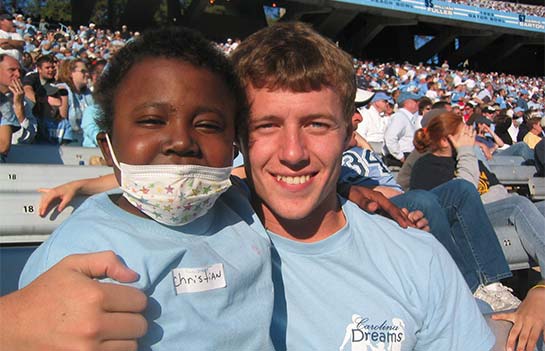THE NEXT STEP
HALL OF FAME INDUCTION A STEPPING STONE, NOT A CAPSTONE, FOR MACK BROWN
By: Lee Pace
Dre Bly returned to Kenan Football Center mid-afternoon one Friday in January after a week of recruiting in time to help host some prospects that weekend. He turned on the television in his office, and it just happened that ESPN Classic was running a replay of the St. Louis Rams' victory in Super Bowl XXXIV over the Tennessee Titans 19 years ago.
Bly winced as he watched himself as a Rams cornerback drop a potential interception late in the game, then smiled when the victory celebration ensued after a 23-16 victory. He reflected on what his Super Bowl ring then and his return just six weeks earlier to Chapel Hill to coach cornerbacks for Mack Brown had in common.
"Everything I've accomplished in football, I owe to Coach Brown," said Bly, a three-time All-America cornerback from 1996-98. "He's a Hall of Fame coach who helped me become a Hall of Fame player. That holds a lot of weight. People pay attention.
"As for his age," Bly says, referring to Brown's 67 years and nodding toward the TV and a clip of Rams coach Dick Vermeil at age 63, "Coach Vermeil was a high-energy guy and showed you can win as an older coach. He laid the foundation and hired a great staff of assistants who could coach and teach. That's what Coach Brown has done.
"I don't care what his age is. He's got more energy than me. And that's hard to do."
Carolina athletic director Bubba Cunningham stunned the college football world on Nov. 27 when he announced hiring Brown to succeed Larry Fedora as the Tar Heels' new head football coach. Exactly one week later, Brown was in New York for induction ceremonies into the College Football Hall of Fame. Among those in the huge ballroom at the Hilton Midtown were some of Brown's former players from head coaching stops at Appalachian State, Tulane, Carolina and Texas.
"He's not finished," said Dusty Renfro, who played under Brown at Texas in the late 1990s and has remained close to the program. "He was out of place not coaching, you could see it."
Johnathan Robertson, a walk-on to the Tar Heel program in the early 1990s, considered the list of coaches already enshrined, men the ilk of Bear Bryant, Darrell Royal, Bobby Bowden and Joe Paterno.
"I think it is amazing at a Hall of Fame event to celebrate a career for someone who's starting the next chapter," said Robertson, a commercial real estate developer in Miami. "That's pretty unique. I'm not sure how often that happens."
Hardly ever, certainly, and it brings up the obvious question of why someone with Brown's credentials, a relatively pressure-free job of talking at ABC/ESPN and deep financial resources would want to get back into the fray of chasing 17-year-old quarterbacks and having your every move rehashed in the fishbowl of major college athletics.
For Brown, it was simple:
"You miss the players, you miss the coaches and the camaraderie, you miss having an impact on young men's lives," he said.
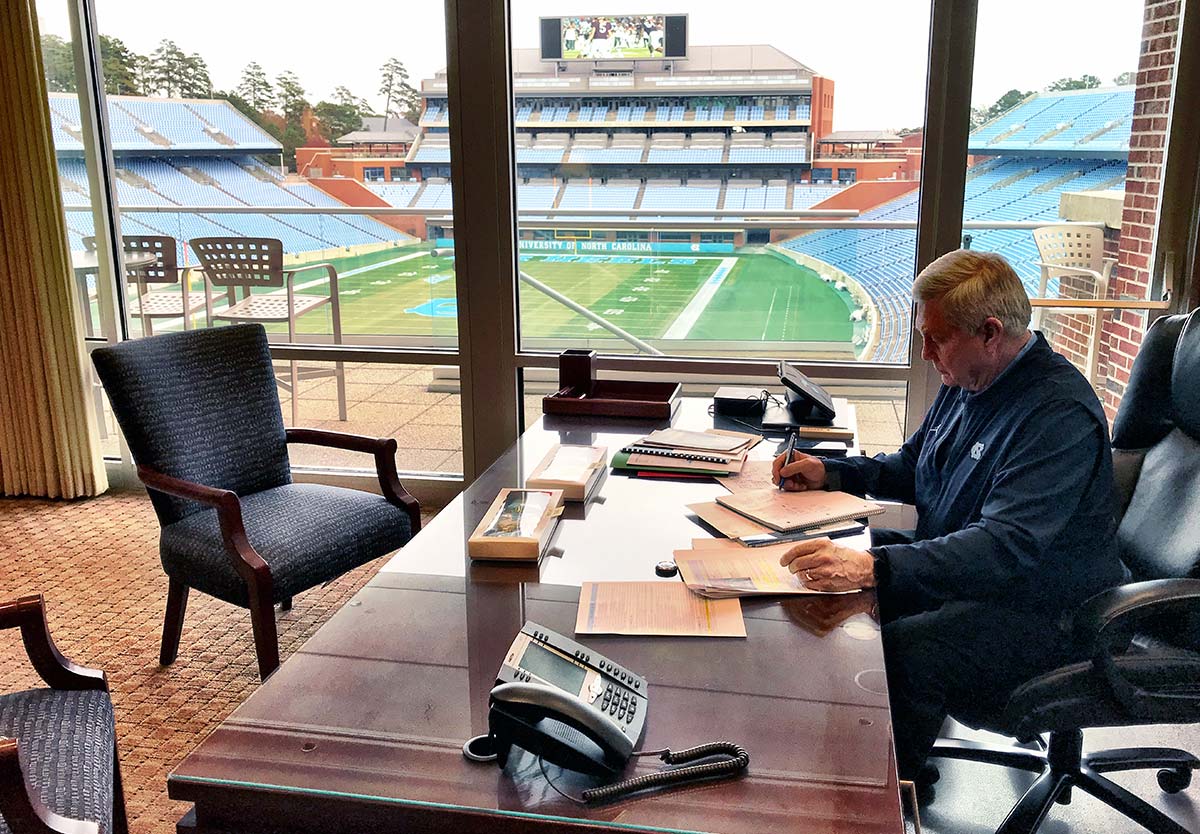
Hiring a new coach two years past the standard retirement age has been panned in some corners. But those who have spent time around Brown the last few years at ESPN studios in Bristol, Conn., and on the road in college football beg to differ.
"I thought this was a phenomenal hire for a number of reasons," ESPN's Paul Finebaum said. "It was outside the box. People say, ‘Well, what do you mean?' Mack Brown's 67 years old. He's already been there before. In my mind, it really showed some creativity. They are getting someone who's very comfortable with the fan base."
"I love to see that the fire is still burning," added Kirk Herbstreit. "Nobody can recruit like Mack Brown. If you get him into the family rooms of recruits, he's going to bring in a different level of player than they're used to having in Chapel Hill."
Brown speaks in terms of "we" when talking about his coaching career and the partnership with his wife of 27 years, Sally, who's actively involved behind the scenes.
"We never said we were retired," Brown says of resigning at Texas after the 2013 season. "We always said we were ‘re-wiring.' We didn't want to quit. We needed to have a purpose."
One effect of Brown's coming back into the coaching fray is that "winningest active coaches" lists have to be recalibrated. Brown enters the 2019 season No. 1 with 244 wins, leading Nick Saban at 237. Bill Snyder at Kansas State and Mark Richt at Miami retired in the offseason with 215 and 171 wins, respectively. Third among active coaches now is TCU's Gary Patterson at 167.
"We are so blessed to have had that longevity and success," Brown says. "You walk into a high school and you talk to these kids, you have Hall of Fame rings and trophies, it's really helped us short term in recruiting. It gives us credibility. And the fact I was on TV for five years, all the kids and coaches saw me. It's been a huge help."
Four of Brown's 10 assistant coaches have direct ties to Brown from their playing days or the embryo of their coaching careers – Bly, Tommy Thigpen, Tim Brewster and Tim Cross. Brown's stature in the business was important as well in hiring the six other coaches.
Receivers coach Lonnie Galloway grew up in Eden and has been a Tar Heel fan all his life. He played at Western Carolina before getting into coaching and most recently was at Louisville.
"Coach Brown being in the Hall of Fame and winning a national championship – you're in the door with that anywhere you want to go," Galloway says. "Our job now is to make sure these high school coaches feel like they should. Growing up in North Carolina, there was always a buzz when Coach Brown was here. Our job is to get it back."
"The most important and biggest reason I'm here is Mack Brown," adds QBs coach and offensive coordinator Phil Longo. "To have the opportunity to work with a guy his caliber and who's been so successful at the top level of the sport is an opportunity I couldn't pass up."
Senior tailback Antonio Williams spent three years at Ohio State before transferring to Carolina for the 2018 season. In the short time Brown has been in charge, he's seen a presence and bearing from the head coach and his staff that has permeated the Kenan Football Center.
"When a coach has confidence, it rubs off on the team," says Williams. "We needed that confidence. We ended the 2017 season on a loss and then lost nine games this year. It's hard to have confidence in the face of something like that. These men have all the confidence in the world."
Brown had a nine-year run at Texas from 2001-09 of 10 wins or better, culminating with the 2005 national title team that went 13-0 and beat USC in the Rose Bowl for the championship. The 2009 team also advanced to the final game but lost to Alabama, an injury to QB Colt McCoy proving to be a precursor to issues at that position that would haunt Brown through a 5-7 season in 2010 and three more years of eight or nine wins. His final season at Texas in 2013 was also marked by the distraction of incessant reports that a group of boosters was lobbying to lure Saban from Alabama.
"It didn't end like everyone would want it to end, and most of the time it doesn't," Brown says. "I thought we had it fixed. I thought we'd turned the program back to 10-plus wins, but we were starting to lose recruits because of rumors. That last year we lost six recruits who were among the best in the country because people were talking about whether I'd be the coach. It got to where it was healthier for me to move on."
That final chapter in Austin has a direct bearing on what's happening now in Chapel Hill.
"He didn't like the way it ended at Texas and he feels like he has something prove," said Dwight Stone, a member of the UNC Board of Trustees and its immediate past chair. "Mack's a competitor."
Pat Crowley was a starting offensive lineman during Brown's first two years at Carolina in 1988-89 and has spent time with Brown since his return to Carolina.
"Some critics say he's too old or whatever, but that's just people taking shots who don't know him," Crowley says. "One of things that is overlooked in this is that he did not leave Texas how we wanted to leave Texas. He has some unfinished business. That's my own observation. More than anything, I think we wanted this job to show people he still has gas in the tank and can turn a program around and win championships. I think this is a perfect setup to win an ACC title and compete nationally."
Brown's longtime friendship with Cunningham, basketball coach Roy Williams and dozens of key Tar Heel administrators and Rams Club members have helped make the transition seamless. And he's putting into practice many of the ideas and tweaks he picked up studying dozens of teams as a color analyst and studio commentator.
"I'm a whole lot better coach now than I was five years ago," Brown says. "I've had time to get away from it, I've had time to look and learn and get my energy back. I was planning on doing this one more time. I put five years into what I wanted to do differently if I did come back.
"I've enjoyed the coaches, enjoyed the kids, I've enjoyed being back out there."
More Stories
The impact of giving comes through in wonderful stories about Carolina student-athletes and coaches, as well as the donors who make their opportunities possible. Learn more about the life-changing impact you can have on a fellow Tar Heel through one of the features included here:
